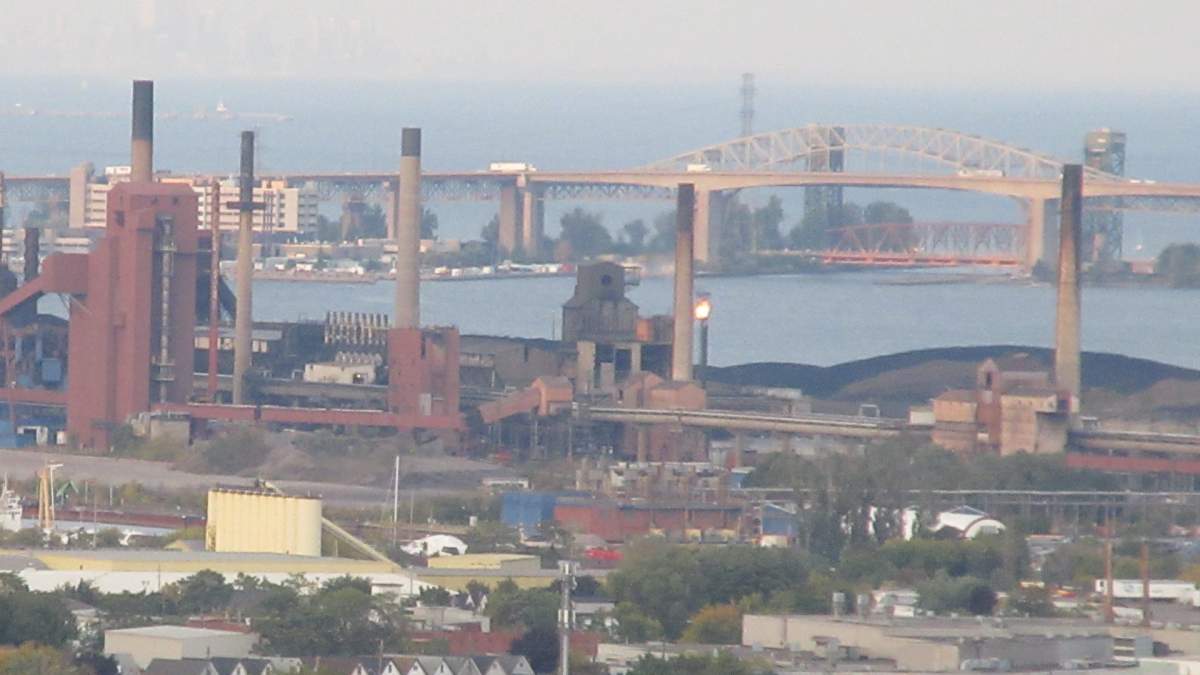Hamilton councillors learned a little more about the province’s air emissions regulations and the impact exemptions for a handful of local industries have on the city.

The explanation comes a month after councilors asked for more information on how “site-specific” air standards are granted to steel-making sectors and what effect, if any, have on residents adjacent to the city’s industrial sector.
MECP manager for human toxicology and air standards Rachel Melzer explained to the committee that provincial air standards are set based on health risks associated with “inhalation exposure” to some contaminants.
She said the “most sensitive risk” might be cancer and that the threshold for the contaminants in question is equivalent to a “one in a million” lifetime incremental cancer risk.
“So the idea is that over the course of a 70-year lifetime, for instance, if a person were continuously exposed to that concentration … their additional risk of cancer … would be equivalent to a one in a million risk,” Melzer cited.

She went on to say standards for other kinds of contaminants, where the associated health risk isn’t cancer risk, are set at a “protective level” where it’s not expected a typical person would have a health effect.
“In the case of sulfur dioxide, people who are exposed … it can trigger respiratory irritation, it can trigger asthma attacks and then other cascades of health risks associated with that,” said Melzer.

Get breaking National news
“So our air standard is set below the threshold at which people would experience the health effects of being exposed to that contaminant.”
Manager of local air quality permits Jeff Burdon said “site specific” standards – values at the property line of an industrial company – observe contaminant risks and their possible impact on nearby residences and schools.
Renewals for the permits through the MECP in recent times have typically been in five-year periods and based on “hardship type arguments” and “aspects of cost effectiveness” to do business.
The current provincial risk management framework is typically developed with consultations from public health units enacting “as low as reasonably achievable” (ALARA) emission levels.
The timeline for “site specific” regulations also coincides with “new or updated” provincial standards usually phased in over five-year increments.
Exemptions are also judged on improved safety measures and commitments to reduce emissions via new technologies, according to MECP staff.
“There are frameworks in Ontario to look at financial hardship and what needs to be reported and metrics that are calculated to determine … the legitimacy of that hardship claim,” said Burdon.

Lower city (Ward 3) councillor Nrinder Nann expressed concerns over carcinogens from four facilities that straddle her district and whether the MECP accounts for “cumulative impact.”
Burdon explained the facilities are required to adapt “best available controls” to reduce emissions “as much as is achievable” and that new developments would have to “undertake a technology benchmarking analysis.”
“So for those new or expanded sources of emission, those are required to be at a level of best available control, and that’s considered in their approvals process,” Burden explained.
West-Central Mountain (Ward 8) councilor John-Paul Danko previously told Global News he was hoping to hear from the province and city industry on future plans to mitigate emissions prior to the extensions of some exemptions set to expire in late June.
“The public doesn’t have confidence in the enforcement regulations that are in place because, basically, it comes back to, well, that’s the best that you can achieve,” Danko said Monday.
The MECP revealed ArcelorMittal Dofasco has four provincial exemptions and Stelco has three, while two each are in place for Harsco, Carmeuse Lime and Rain Carbon.
Stelco, Harsco and ArcelorMittal Dofasco have upcoming approval deadlines set for the end of June.







Comments
Want to discuss? Please read our Commenting Policy first.